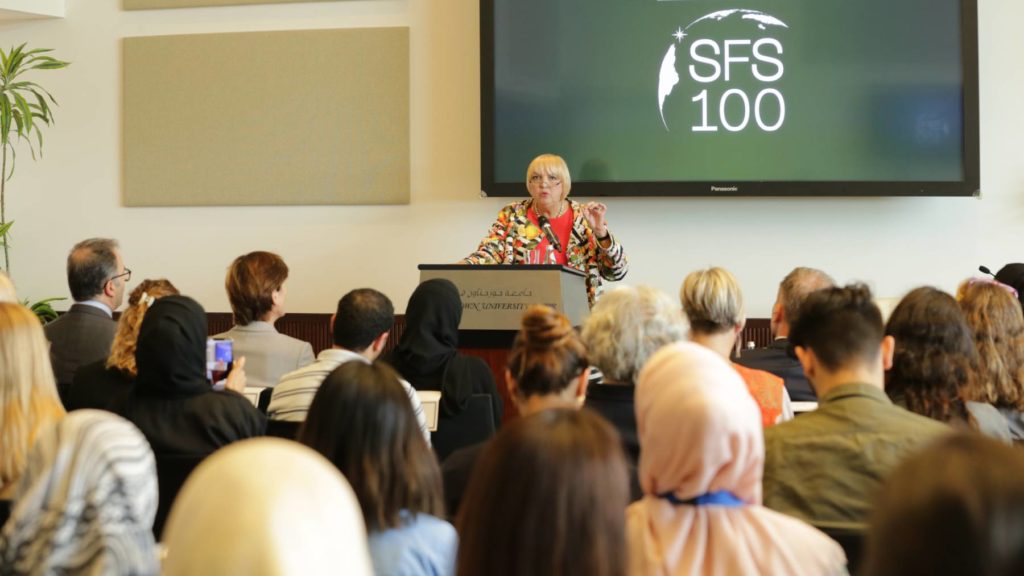German Bundestag Vice President Discusses Climate Change at Georgetown

The Vice President of the German Bundestag (Parliament), Ms. Claudia Roth, was at Georgetown University in Qatar (GU-Q) recently for a public talk on the rising threat of climate change to the health, safety, and security of women and girls worldwide.
In a lecture titled “Women’s Rights, Global Feminism and Sustainable Development: Time for a Change,” the German parliamentarian and human rights activist explored the many ways that environmental changes have had an outsized impact on the most marginalized members of society. And she urged the audience, which included students, faculty, staff, members of the diplomatic community, and the Ambassador of Germany to the State of Qatar, H.E. Hans-Udo Muzel, to seek solutions to these problems.
“There are major social policy challenges and issues that will affect your generation, so I’m especially pleased to be speaking with you today. The answer to these difficult questions don’t lie in Germany or Qatar alone. They can only be found in global partnerships. This requires a diverse array of players, including politicians, a free and vocal civil society, activists, academics, universities, school students, and students like you – the makers of tomorrow’s world,” she began.
In her presentation she explained that the climate crisis presents major risks by reinforcing existing structural gender discrimination. Women face higher mortality rates in the floods and heat waves caused by climate change as a result of unequal access to information and resources about the threats. Women also serve as caretakers to children and extended family, she said, making it more difficult to seek safety. And with food security at risk due to climate change, she added, more women work in agriculture instead of seeking an education and employment, losing out on the financial security and access to needed resources they bring.
At the talk, she was introduced by the Dean of GU-Q, Dr. Ahmad Dallal. “It was a wonderful opportunity to have this enriching dialogue with an influential lawmaker and humanitarian advocate, where our students could apply classroom theory to lived realities and perspectives, and gain a unique understanding of the complexities of our world.”
With climate change eroding coastlines, she remarked, millions of people are at risk, and thousands of years of cultural heritage and history. In particular, low and middle income countries are paying the cost of the climate change caused by more developed countries.
In concluding remarks, she said: “The structural discrimination of women is a reality all around the globe. The impact of hunger, poverty, armed conflict, and increasingly, climate change, affect women in the Global South particularly hard. So we must ask ourselves what we need to do, what politics and behavior do we need to change to end this injustice and abuse once and for all.”